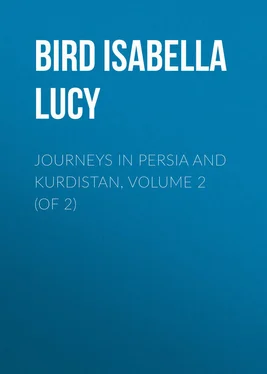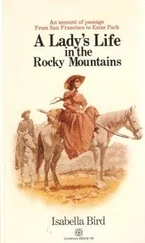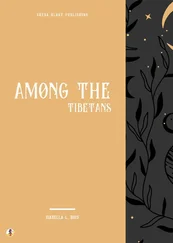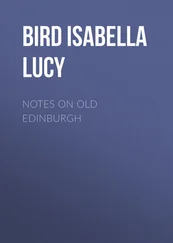Isabella Bird - Journeys in Persia and Kurdistan, Volume 2 (of 2)
Здесь есть возможность читать онлайн «Isabella Bird - Journeys in Persia and Kurdistan, Volume 2 (of 2)» — ознакомительный отрывок электронной книги совершенно бесплатно, а после прочтения отрывка купить полную версию. В некоторых случаях можно слушать аудио, скачать через торрент в формате fb2 и присутствует краткое содержание. ISBN: , Жанр: foreign_language, foreign_antique, foreign_prose, Путешествия и география, на английском языке. Описание произведения, (предисловие) а так же отзывы посетителей доступны на портале библиотеки ЛибКат.
- Название:Journeys in Persia and Kurdistan, Volume 2 (of 2)
- Автор:
- Жанр:
- Год:неизвестен
- ISBN:http://www.gutenberg.org/ebooks/38828
- Рейтинг книги:5 / 5. Голосов: 1
-
Избранное:Добавить в избранное
- Отзывы:
-
Ваша оценка:
- 100
- 1
- 2
- 3
- 4
- 5
Journeys in Persia and Kurdistan, Volume 2 (of 2): краткое содержание, описание и аннотация
Предлагаем к чтению аннотацию, описание, краткое содержание или предисловие (зависит от того, что написал сам автор книги «Journeys in Persia and Kurdistan, Volume 2 (of 2)»). Если вы не нашли необходимую информацию о книге — напишите в комментариях, мы постараемся отыскать её.
Journeys in Persia and Kurdistan, Volume 2 (of 2) — читать онлайн ознакомительный отрывок
Ниже представлен текст книги, разбитый по страницам. Система сохранения места последней прочитанной страницы, позволяет с удобством читать онлайн бесплатно книгу «Journeys in Persia and Kurdistan, Volume 2 (of 2)», без необходимости каждый раз заново искать на чём Вы остановились. Поставьте закладку, и сможете в любой момент перейти на страницу, на которой закончили чтение.
Интервал:
Закладка:
For pasturage there is only the right of "use and wont," and the grazing is free. For camping-grounds each tribe has its special "use and wont," subject to change by the order of the Ilkhani, but it was out of quarrels concerning these and the pasture lands that many of the feuds at present existing arose.
We left Ali-kuh in a westerly direction, followed and crossed the Karun, left it at its junction with the Duab, ascended this short affluent to its source, crossed the Gardan-i-Cherri at an elevation of 9200 feet, and descended 4000 feet into the Bazuft or Rudbar valley, where the camps now are. The road after leaving Ali-kuh, where the slopes were covered with pink and white hollyhocks, keeps along a height above the Karun, and then descends abruptly into a chasm formed of shelves of conglomerate, on the lowest of which there is just room for a loaded mule between the cliffs and the water at the narrowest part. Shadowed by shelf upon shelf of rock, the river shoots through a narrow passage, as though impatient for its liberation from an unnatural restraint, and there is what I hesitate to call – a bridge. At all events there is a something by which men and beasts can cross the chasm – a rude narrow cradle of heavy branches, filled with stones, quite solid and safe, resting on projections of rock on either side. The Karun, where this Pul-i-Ali-kuh crosses it, is only nine feet six inches in width. I found the zigzag ascent on the right bank a very difficult one, and had sundry falls.
Two hours more brought us to the junction of the Karun and Duab ("two rivers") above which the former is lost to view in a tremendous ravine, the latter coming down a green valley among high and mostly bare mountains, on a gravelly slope of one of which we camped, for the purpose of ascending a spur of a lofty mountain which overhangs the Karun. On such occasions I take my mule, Suleiman, the most surefooted of his surefooted race, who brings me down precipitous declivities which I could not look at on my own feet. After crossing the Duab, a green, rapid willow-fringed river, by a ford so deep as to be half-way up the bodies of the mules, and zigzagging up a steep mountain side to a ridge of a spur of Kaisruh, so narrow that a giant might sit astride upon it, a view opened of singular grandeur.
On the southern side of the ridge, between mountains of barren rock, snow-slashed, and cleft by tremendous rifts, lying in shadows of cool gray, the deep, bright, winding Duab flows down the green valley which it blesses, among stretches of wheat and mounds where only the forgotten dead have their habitation, – a silver thread in the mellow light. On the northern side lies the huge Tang-i-Karun, formed by the magnificent mountain Kaisruh on its right bank, and on the left by mountains equally bold, huge rock-masses rising 3000 feet perpendicularly, and topped by battlements of terra-cotta rock, which took on vermilion colouring in the sunset glow. Through this mighty gorge the Karun finds its way, a green, rapid willow-fringed stream below the ridge, and visible higher up for miles here and there in bottle-green pools, everywhere making sharp turns in its stupendous bed, and disappearing from sight among huge piles of naked rock. Even on this splintered ridge, at a height of 8000 feet, there were tulips, celery in blossom, mullein, roses, legions of the Fritillaria imperialis , anemones, blue linum, and a wealth of alpine plants.
There also are found in abundance the great umbelliferous plants — Ferula glauca , Ferula candelabra , and the Ferula asafœtida . The latter I have never seen elsewhere, and was very much rejoiced to procure some of its "tears," though the odour will cling to my gloves till they are worn out. Hadji had heard that it is found in one or two places in the Bakhtiari country, but up to this time I had searched for it in vain. There also for the first time I found the Astragalus verus , the gum tragacanth of commerce. The ordinary tragacanth bush, the "goat's thorn," the Astragalus tragacantha , which is found everywhere on the arid hillsides, produces a gummy juice but no true gum, and its chief value is for kindling fires.
Following up the Duab, through brush of tamarisk, Hippophae rhamnoides , and Indian myrtle, above the cultivated lands, and passing burial mounds with their rude stone lions with their sculptured sides, we camped in a valley at the foot of the Gardan-i-Cherri and Kuh-i-Milli, close to the powerful spring in the hillside which is the source of the stream, where there was abundant level ground for three camps. The next evening Karim, the man who so nearly lost his arm some time ago, was carried past my tent fainting, having been severely kicked in the chest by the same horse that lacerated his arm. "I am unlucky," he murmured feebly, when he came to himself in severe pain.
I have crossed the Gardan-i-Cherri twice, and shall cross it a third time. It marks a great change in the scenery, and the first intimation of possible peril from the tribesmen. The ascent from the east, which is extremely rugged and steep, is one of 2000 feet in three and a half miles. Near the top were many Ilyats camping without their tents, a rough-looking set, with immense flocks, and on the summit the Agha, who was without his attendants, met some men who were threatening both in speech and gesture.
From the top there is a wonderful view into an unknown land. The ranges are heavily wooded, and much broken up into spurs and rounded peaks. Between the great range, crossed at a height of 9550 feet by the Cherri Pass, and a wall-like range of mighty mountains of white limestone with snow on them hardly whiter than themselves, lies the Bazuft valley, 4000 feet below, and down upon it come sharp forest-covered spurs, often connected by sharp ridges of forest-covered rocks cleft by dark forest-filled ravines, with glimpses now and then of a winding peacock-green river, flowing at times through green lawns and slopes of grain, at others disappearing into gigantic cañons – great forest-skirted and snow-slashed mountains apparently blocking up the valley at its higher end. At the first crossing all lay glorified in a golden veil, with indigo shadows in the rifts and white lights on the heights.
The first part of the descent is fearfully rough, a succession of ledges of broken rock encumbered here and there with recently dead horses or mules, and the whole downward course of 4000 feet is without a break, the climate getting hotter and hotter as one descends. At 8000 feet the oak forests begin. This oak bears acorns nearly three inches long, which are ground and made into bread. All other vegetation is dried and scorched, and the trees rise out of dust. In this forest we came upon a number of Ilyats, some of whom were lying under a tree, ill of fever, and Aziz Khan insisted that then and there I should give them quinine.
At the bottom of this unalleviated descent there is a shady torrent, working a rude flour mill; a good deal of wheat speckled with hollyhocks, white campanulas, and large snapdragons; some very old tufa cones, and below them level lawns, eaten bare, fringed with oaks, with dry wood for the breaking; and below again the translucent, rapid, peacock-green, beautiful Bazuft. But not even the sound of the rush of its cool waters could make one forget the overpowering heat, 100°, even in the shade of a spreading tree.
I know not which is the more trying, the ascent or the descent of the 4000 feet of ledges and zigzags on the southern face of the Gardan-i-Cherri. The road is completely encumbered with stones, and is being allowed to fall into total disrepair, although it is the shortest route between Isfahan and Shuster. Things are undoubtedly deteriorating. The present Ilkhani is evidently not the man to get and keep a grip on these turbulent tribesmen. I notice a gradual weakening of his authority as the distance from Ardal increases.
Читать дальшеИнтервал:
Закладка:
Похожие книги на «Journeys in Persia and Kurdistan, Volume 2 (of 2)»
Представляем Вашему вниманию похожие книги на «Journeys in Persia and Kurdistan, Volume 2 (of 2)» списком для выбора. Мы отобрали схожую по названию и смыслу литературу в надежде предоставить читателям больше вариантов отыскать новые, интересные, ещё непрочитанные произведения.
Обсуждение, отзывы о книге «Journeys in Persia and Kurdistan, Volume 2 (of 2)» и просто собственные мнения читателей. Оставьте ваши комментарии, напишите, что Вы думаете о произведении, его смысле или главных героях. Укажите что конкретно понравилось, а что нет, и почему Вы так считаете.












